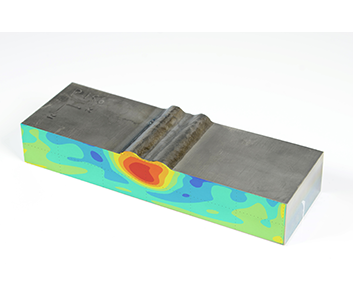The heart of work at Hill Engineering has everything to do with residual stress. That’s why we thought it was about time we published a case study giving a general overview of what residual stress is, and why it is so important for designers and manufacturers to consider.
Residual stress is the stress present in a material in the absence of externally applied loading. These stresses can often form during manufacturing, and are typically an unintentional byproduct of a manufacturing process. They can be caused by a number of factors, including plastic deformations, temperature cycles, or phase transformations.

The case study goes into greater detail about different types of residual stresses and how residual stress engineering can use these stresses to improve material performance in manufactured parts, often resulting in an extended usable lifetime.
The case study concludes by listing the many residual stress measurement techniques we employ at Hill Engineering, with links to more information on each.
You can find the full case study here. If you have any questions regarding residual stress or any of the measurement techniques we have available, please feel free to contact us.